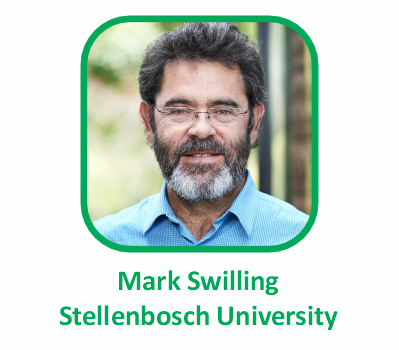
Conference Title: Rethinking the financing of the green industrial transformation in Africa
Abstract: The total energy generated on the African continent (in TWh) is equal to the energy generated in France and Germany combined. With a population of over 1 billion compared to 140 million for France and Germany, it follows that Africa needs massive investments in energy infrastructures to drive the overall industrialisation of African economies. However, if this is achieved using fossil fuels, none of the climate targets agreed in Paris in 2015 will be achieved. This raises two challenges. First, what are the most appropriate ways of conceptualising and formulating green industrial policies on the continent. Will this be about ‘picking winners’ or facilitating broad-based partnerships to achieve long-term missions? Second, what is the most appropriate way of mobilising the finance that will be required to achieve a low-carbon industrial transformation of African economies. Africa receives only 2% of global climate finance most of in the form of debt, and the cost of capital is 5-15% - some the highest in the world. 37 of the 69 poorest countries in the world face debt distress, most in Africa. If their cost of capital was equal to what developed countries pay (i.e. 1-2%), none of them would be in debt distress. How then does Africa fund a low-carbon green transition pathway that results in well-being and social justice for all?
Profile: Mark Swilling is an accomplished professional with a diverse range of roles and achievements. He is a member of the International Resource Panel and a fellow of the World Academy of Art and Science. Additionally, he had served as a board member of the Development Bank of Southern Africa since 2014 and held the position of Chairperson from January 2019 to September 2019, and again from November 2021 to the present.
Throughout his career, the individual has focused on research collaborations aimed at catalyzing societal transitions, particularly within the urban context. In 1985, he played a pivotal role in establishing a Johannesburg-based NGO called PLANACT. The organization, funded by European donors, employed over 40 activist researchers and provided research support to South Africa's urban social movements during the 1980s and 1990s. His involvement extended to supporting the negotiations process that led to the adoption of the new democratic constitution in 1994.
In recent years, Mark Swilling has expanded his work on an international scale, particularly through his role in the United Nations' International Resource Panel since 2007. He has engaged in research collaborations and played a leading role in producing the Weight of Cities report published by the IRP in 2018. As the co-lead author and coordinator of an international research team, he dedicated four years to the project. His focus has been on using research processes to enhance evidence-based problem-solving and capacity-building initiatives.
In 2017, in response to a cabinet reshuffle in March, he initiated the State Capacity Research Project. This collaborative effort involves researchers from the University of Cape Town, University of Johannesburg, University of the Witwatersrand, and Stellenbosch University. The project's primary objective is to conduct research on state-owned enterprises and various aspects related to the concept of state capture.
Mark Swilling's extensive experience, research contributions, and commitment to addressing societal challenges position him as a notable figure in his field.
